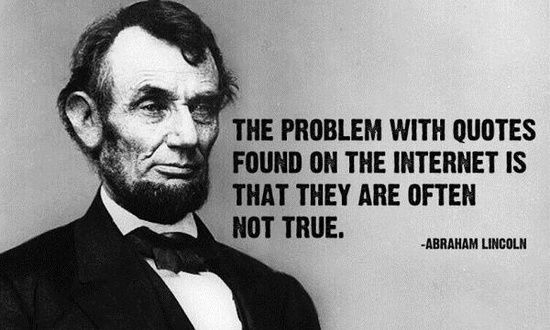Over the years, I’ve been asked why I would quote from someone in my books or on social media when I don’t agree with them in every area. My response is that when I quote someone in a context of agreement, the only thing I’m saying is I agree with that statement, not all their other statements. Nor is my quoting someone a blanket endorsement of their lifestyle and choices in every area. Otherwise, there is no one I or anyone could quote from!
Of course, the question is where to draw the line. I’m aware that it’s not a good idea to always quote from anyone whose individual statement I technically agree with and appreciate. Even Hitler said a few things that I suppose I could agree with, but obviously I wouldn’t quote him. As John Piper puts it, “Everybody says true things from time to time—even the devil. But that doesn’t make them reliable teachers.”
And I need to further qualify the above statement, because sadly, as time has gone on, there are contemporary people I’ve quoted from who have since walked away from the faith or had gross moral failures, and therefore, I have chosen to remove their quotes from our website and my books. So my statement above shouldn’t be taken as a blanket endorsement for quoting just anyone. I do feel a weight of responsibility to be careful who I quote from, and don’t want to encourage readers to pursue learning from teachers or writers who don’t line up with sound teaching from Scripture.
But to my original point: for example, there are any number of areas in which I disagree with C. S. Lewis, but the quotes from him I put in my books are very insightful observations which I do agree with. Another example is Martin Luther, whom I respect and quote from even though he was anti-Semitic, and I deeply disagree with his view of Jewish people.
To be influenced by someone does not require that we endorse that person in all areas. That said, there is also much inaccurate criticism of people on the internet. Bloggers and commenters are quick to throw around the label of “false teacher” or “false prophet.” While there absolutely is such a thing as false teachers, we should be careful to articulate what truly makes someone a false teacher—and that isn’t just differences of opinion over secondary matters. (See these thoughts from John Piper, and this article about 7 Traits of False Teachers from Colin Smith. And here are 15 Discernment Diagnostics from Kevin DeYoung.) At times there’s a sense from some believers that there are very few people who make the list for “safe quotes.” We can appreciate a quote and learn from it without totally agreeing with the person who said it in every way.
When it comes to false accusations, I’ve been sent things that claim C. S. Lewis was a universalist. That’s simply false. A universalist believes everyone will be saved and go to Heaven. But Lewis emphatically believed some people would go to hell for eternity, not Heaven, and he said so clearly. (In this article, I talk more extensively about Lewis’s writings on hell, which include many profound and fascinating things. Some are biblically precise, while others are more abstract and subject to misunderstanding. In some cases, his views are not solidly biblical. But many of his insights on hell are true to Scripture, and some of his speculations are compelling food for thought.)
John Piper has also addressed the question of “How I Process the Moral Failures of My Historical Heroes?” in the following video. I found this helpful, and hope you do too:
Photo: Unsplash




